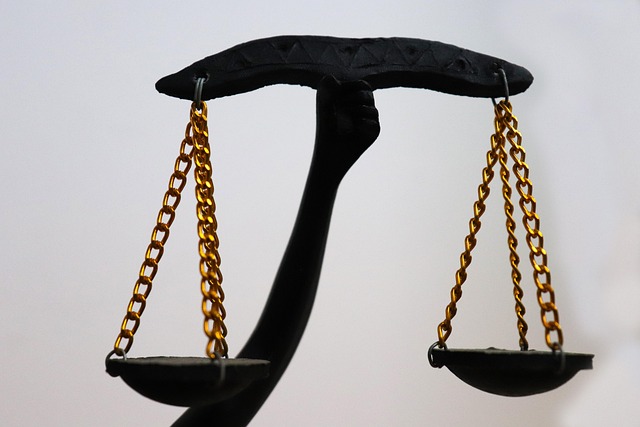Whistleblower Protection Laws safeguard individuals reporting corporate misconduct, including drug-related crimes. Understanding these laws and employing strategic Legal Approaches for Defending Drug Possession are crucial for both whistleblowers and legal professionals. These approaches ensure protections, navigate complexities, and foster transparency while defending against charges and protecting rights. Successful whistleblower cases demonstrate the impact of these legal strategies in maintaining accountability and inspiring future disclosures. Engaging experienced counsel specialized in philanthropic and political communities is vital for favorable outcomes.
“Uncovering truth through whistleblowers is a vital aspect of maintaining integrity in various sectors, especially healthcare. This article delves into the legal landscape surrounding whistleblower protection lawsuits, offering a comprehensive guide for both claimants and respondents. Understanding ‘Whistleblower Protection Laws’ is crucial when facing drug possession cases, as these laws safeguard individuals who expose wrongdoing. We explore effective legal approaches to defend against such charges, ensuring fair treatment while navigating court proceedings. This resource provides insights into the rights and impacts of whistleblowers, assisting those involved in managing these complex scenarios.”
- Understanding Whistleblower Protection Laws
- Strategies for Defending Drug Possession Cases
- Legal Rights of Whistleblowers and Their Impact
- Navigating Court Proceedings: A Guide for Respondents
Understanding Whistleblower Protection Laws

Whistleblower Protection Laws (WPL) are a set of legal safeguards designed to encourage individuals to come forward with information about illegal or unethical activities within their organizations, without fear of retaliation. These laws vary across jurisdictions but generally provide immunity from liability and protection against adverse employment actions for whistleblowers who disclose information they reasonably believe is evidence of criminal activity, serious fraud, health or safety hazards, or violations of consumer protection, environmental, and other regulations.
Understanding WPLs is crucial for both individuals considering blowing the whistle on corporate misconduct and legal professionals tasked with defending clients facing Whistleblower Protection Lawsuits. The laws offer a powerful tool to combat white-collar and economic crimes, ensuring that those who expose wrongdoing can do so without jeopardizing their careers or facing personal harm. An unprecedented track record of successful whistleblowers underscores the effectiveness of these legal approaches in protecting individuals at all stages of the investigative and enforcement process.
Strategies for Defending Drug Possession Cases

When facing drug possession charges, individuals often seek strategic legal approaches to defend themselves against what may seem like overwhelming evidence. The first step in any defense is understanding the complexities of the case and the specific circumstances leading up to the accusation. Legal professionals play a crucial role in guiding clients through the intricate web of regulations and procedures surrounding drug-related offenses.
One key strategy involves scrutinizing every stage of the investigative and enforcement process, ensuring that rights were not infringed upon and that evidence was obtained legally. This includes examining search warrants, questioning witness testimonies, and challenging any potential violations of the accused’s constitutional rights. Additionally, building a solid defense may include exploring options for avoiding indictment and negotiating plea bargains, which can significantly mitigate consequences, especially in cases where the accused has no prior criminal history. Jury trials remain a significant aspect of the legal system, providing an avenue for presenting evidence and arguments to a group of peers who will decide the outcome.
Legal Rights of Whistleblowers and Their Impact

Whistleblowers play a crucial role in exposing illegal activities and safeguarding public interest. They possess unique legal rights that enable them to bring forward information without fear of retaliation. These rights are enshrined in various laws designed to protect individuals who expose corporate or government wrongdoings, including those related to drug possession. By employing legal approaches for defending drug possession cases, whistleblowers can navigate complex legal landscapes and avoid indictment.
The impact of successful whistleblower protection lawsuits is profound. It not only ensures that corporate accountability remains intact but also encourages others to come forward with valuable insights. An unprecedented track record of such cases has set a precedent, demonstrating that protecting whistleblowers is not just legally feasible but also beneficial for fostering transparency and upholding justice.
Navigating Court Proceedings: A Guide for Respondents

Navigating Court proceedings related to Whistleblower Protection Lawsuits can be complex, especially for respondents facing allegations of drug possession or related offenses. The key is to understand that these cases are not merely about the facts of the incident but also involve intricate legal interpretations and precedents. Respondents should be prepared to mount a robust defense by employing strategic legal approaches for defending drug possession.
This may include challenging the evidence presented, scrutinizing the whistleblower’s motivations, and leveraging any exculpatory information or alibis. It is crucial to engage experienced legal counsel who can navigate this intricate landscape, ensuring your rights are protected and presenting a compelling case. An unprecedented track record in similar cases within the philanthropic and political communities further underscores the importance of expert representation, ultimately aiming to achieve extraordinary results.
Whistleblower Protection Laws play a pivotal role in ensuring individuals can come forward with credible information without fear of retaliation. When faced with drug possession lawsuits, understanding these laws and employing strategic legal approaches are crucial. By safeguarding the rights of whistleblowers, we not only protect public health and safety but also foster an environment where truth and accountability thrive. For respondents navigating court proceedings, a thorough grasp of these protections can significantly impact outcomes, ensuring fairness and due process.






